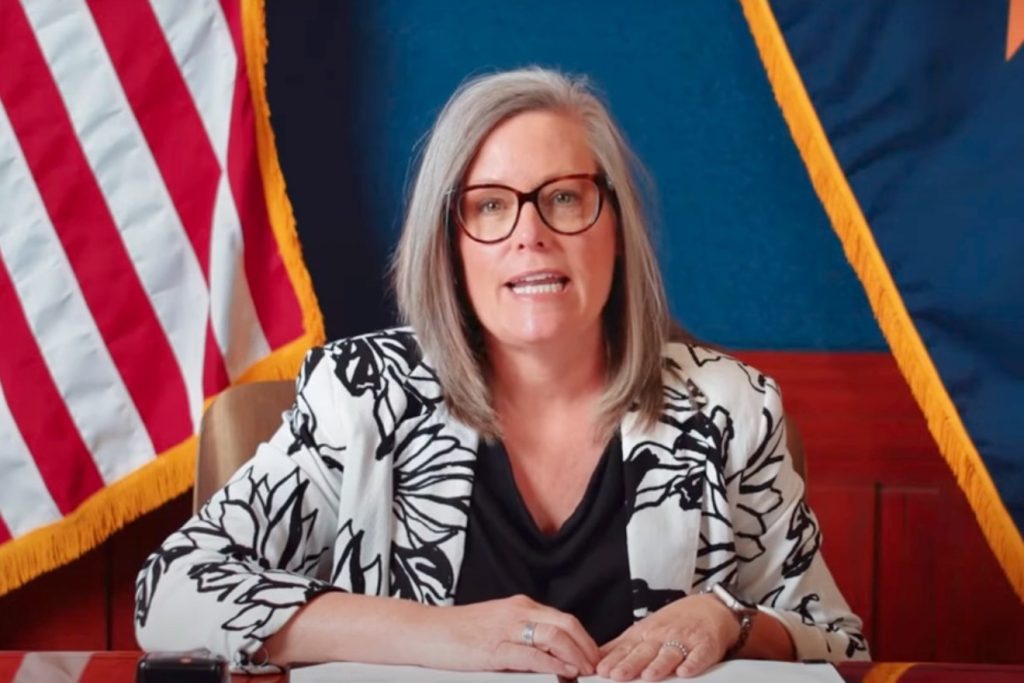Governor Hobbs Issues First Veto of Legislative Session

Debate Rages Over Immigration Enforcement Authority
In a decisive move, Gov. Katie Hobbs of Arizona wielded her veto power for the first time this legislative session rejecting a contentious immigration bill aimed at criminalizing illegal immigration within the state. According to 13 News, the immigration bill, known as SB 1231 or the Arizona Border Invasion Act, sought to grant state and local law enforcement the authority to arrest individuals for immigration violations mirroring a similar initiative in Texas that faced the legal challenges. However, Hobbs’ veto stands as a stark rebuke to the proposed measure which stirred heated debate among lawmakers and citizens alike.
READ ALSO: US Military Recruitment Shortage Seeks Solutions With 41,000 Troop Gap
Partisan Divide Deepens Over Immigration Bill Veto
The vetoed bill drew sharp criticism and praise along party lines. Supporters, led by state Sen. Janae Shamp, expressed disappointment and frustration arguing that the veto undermines efforts to secure the border and equip law enforcement with necessary tools. Shamp emphasized the Republican-controlled Legislature’s commitment to fortifying border security portraying the veto as a setback to their agenda. Meanwhile, opponents of the bill applauded Hobbs’ decision, citing concerns over potential constitutional conflicts and echoing past legal precedents set by the U.S. Supreme Court. The clash over SB 1231 underscores the ongoing battle between state and federal jurisdiction in immigration bill enforcement. While proponents championed the immigration bill as a proactive measure to address border security critics highlighted the legal pitfalls and constitutional implications. Notably, the parallels drawn between SB 1231 and the overturned provisions of Arizona’s SB1070 coupled with the recent Supreme Court intervention in Texas underscore the complex legal landscape surrounding immigration bill policy at the state level. With Hobbs’ veto, the fate of Arizona’s immigration enforcement efforts remains uncertain fueling ongoing debates on immigration bill reform and the role of state governments in shaping policy.




